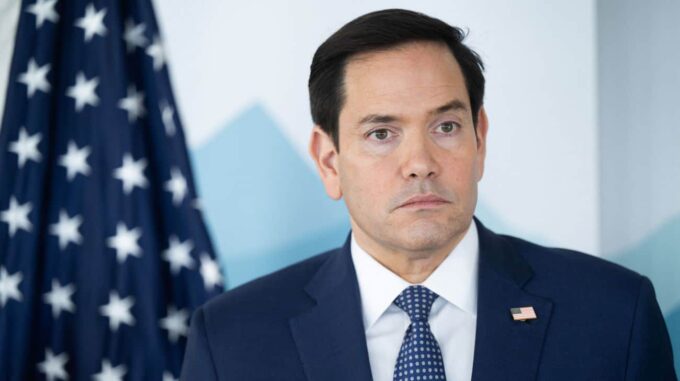U

S. Secretary of State Marco Rubio expressed caution regarding new sanctions against Russia, emphasizing that their application is premature at this stage. According to him, the Trump administration has not yet exhausted its options to use diplomatic dialogue to achieve a peaceful settlement of the situation in eastern Ukraine and the surrounding regions. In an interview with NBC News, Rubio stated that the U.S. president values the possibility of diplomacy and is doing everything possible to avoid escalation of the conflict, focusing on efforts to reach a compromise. The program's host asked whether the recent remarks by Trump about possible new sanctions against Russia were a signal of a change in U.S. policy. In response, the Secretary of State emphasized: "It's not the time yet. The president recognizes that he has this tool in this situation, he is aware of it, and he discusses it constantly. But he is truly focused on achieving a peace agreement because that's what all of us want — for the deaths and violence to stop. There are various scenarios for responding to those responsible for destabilizing the situation, but currently, the most important thing is not to close the door on diplomacy. Because, at the moment, the only country or organization capable of sitting at the negotiating table with both sides and facilitating peace is the United States. Only our president has the ability and responsibility to conduct negotiations with both conflicting parties. Therefore, we aim to exhaust all possible options before moving to stricter measures. The idea is to see that something can work to establish peace," Rubio emphasized. Just a few days earlier, the official highlighted that the upcoming week would be decisive for the U.S. decision regarding further steps in the confrontation between Russia and Ukraine. He said that the Washington government is in a state of tense anticipation, analyzing all possible options and exit channels from the conflict. At the same time, he added that diplomacy remains a priority, and the U.S. seeks to utilize all opportunities to achieve stable and long-lasting peace. It should be noted that the background of these statements is the meeting of international leaders in the Vatican, which took place on April 26. That day, a broad range of politicians and diplomats from around the world gathered in the Italian capital to pay homage to Pope Francis. On this day, Ukrainian President Volodymyr Zelensky and U.S. President Donald Trump met in person for the first time in a long while, and their meeting was called one of the key events of this diplomatic forum. Ukrainian officials emphasized the strategic importance of the meeting, noting that it could become historic and contribute to the development of Ukrainian-American relations. The White House noted that Zelensky’s conversation with Trump was very productive. The same day, Trump made sharp comments regarding recent Russian missile strikes on Ukrainian cities, expressed doubts whether Vladimir Putin truly seeks rapid and lasting peace, and threatened additional sanctions in case of further aggressive actions. Simultaneously, Trump criticized the actions of the Russian regime and stated that the U.S. remains one of the main guarantors of support for Ukraine in its fight for sovereignty and territorial integrity. However, prospects for a peaceful settlement remain uncertain, as political circles are growing more inclined toward more decisive actions. Thus, the current diplomatic game between the U.S. and Russia continues in a very tense atmosphere. For several days, Kyiv, Washington, and their international partners have been closely monitoring the developments, trying to find the most optimal solution to end the conflict. For now, Washington maintains a position of restraint, emphasizing the value of dialogue and diplomacy, but does not rule out the possibility of sanctions in the future if diplomatic efforts fail. The technical and political developments remain open, and the coming days will be decisive for the future policies of the U.S. and its allies in the confrontation between Russia and Ukraine.

